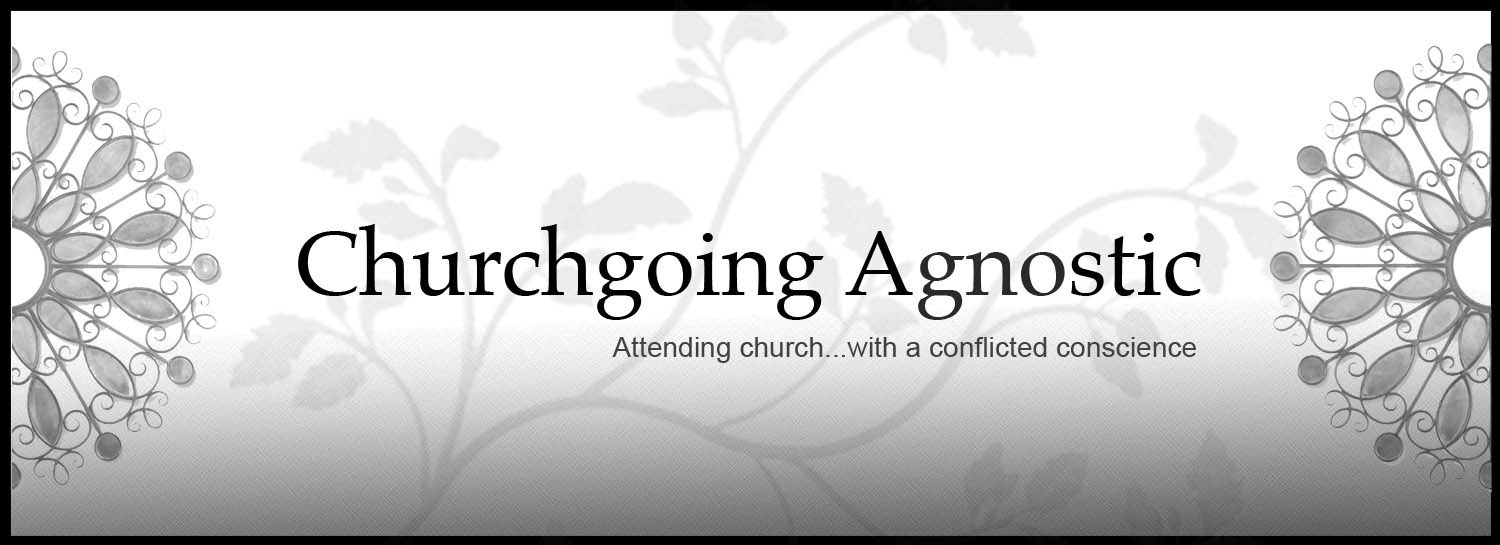Sometimes I will have a hunch or a growing conviction that has yet to be supported by adequate evidence and, despite my lack of information, I hold on to such convictions because I think I might be on to something (a kind of “faith”- I suppose). In other words, I have a sneaking suspicion that- given adequate time and investigation- I could discover a new truth or way of understanding something.
A majority of my suspicions are driven by hints of an anomaly that is being ignored, suppressed or overlooked by popular opinion. Other times, my hunches and suspicions are aroused in response to condemnatory acts committed towards other people in the name of a political or religious ideology. Many times I have followed such hunches to some rather credible sources which have given adequate support for my unconventional views.
But I also realize how dangerous it is to seek justification for one’s opinions with no regard for the truth. Those individuals who follow that path are highly resistant to reasonable alternatives and will not allow themselves to entertain the validity of a different perspective. Instead, they operate with a narrow "tunnel-vision", focused only on their personal agendas. This is an easy trap to fall in and I pray that I can avoid succumbing to this temptation. Such an extreme desire for justification destroys the possibility for both honest investigation and authentic dialogue between concerned individuals. Convinced of the certainty of their claims, such dogmatic individuals evoke in my mind the image of a deaf megaphone shouting its proclamations at a high decibel level with no regard for the whispering voices of reason, doubt and humility- those age-old enemies of individuals who seek to justify themselves.
While some fundamentalists might view them as the qualities of inferior beings, I value reason, doubt and humility as I believe they are trustworthy guides in the sincere search for truth and discovery. I personally find no value in being irrational, certain and confident when one’s views are proven to be wrong.
But I don't mistake humility for silence. I truly believe there are those times in which we must fearlessly express both our concerns and the truth as we understand it. Here, I am reminded of Dr. Martin Luther King Jr.’s prophetic address at New York’s Riverside Church on April 4, 1967 (exactly one year before his assassination) where he reinforced his much-criticized opposition to the United States’ involvement in the Vietnam War. King opened his speech with a stirring discussion about the difficulty of being a non-conformist driven by “the demands of inner truth” during a time of great uncertainty. King says:
Even when pressed by the demands of inner truth, men do not easily assume the task of opposing their government's policy, especially in time of war. Nor does the human spirit move without great difficulty against all the apathy of conformist thought within one's own bosom and in the surrounding world. Moreover, when the issues at hand seem as perplexed as they often do in the case of this dreadful conflict, we are always on the verge of being mesmerized by uncertainty; but we must move on. And some of us who have already begun to break the silence of the night have found that the calling to speak is often a vocation of agony, but we must speak. We must speak with all the humility that is appropriate to our limited vision, but we must speak.King speaks of a desperate need to speak out against injustice with “the humility that is appropriate to our limited vision.” But he is not calling for a humility that is silenced or "mesmerized by uncertainty," but one that functions despite it.
I find that when I am surrounded by those whose opinions and conclusions I consider faulty or misinformed, I feel compelled and responsible to seek out a more intellectually credible alternative. In those times, it seems my desire for truth and justification merge into one. But maybe that’s not a bad thing. Perhaps we would never seek truth if we didn’t desire some degree of justification for our hunches. Maybe this is one process that leads to progress.
Now I recognize that every researcher is limited by their own humanity and selective in their reference materials. I am also aware of my own tendency to persist in a desperate hunt for a loophole in what I consider to be an inconvenient truth. I admire the irony that in many cases those who aggressively seek to discredit an idea often find themselves becoming converted to the claims of that same idea. This gives me hope in the human capacity to seek the truth and shows that truth may survive despite our best efforts to resist it or suppress it.
I find it much more noble to seek the truth despite our desire for justification. Here, I am reminded of a few things a close friend of mine and fellow seminarian once said. Once, while praying before his sermon, my friend- a young, liberal-minded African-American pastor and scholar- stood before a congregation of conservative Christians and in a gentle tone said, “May we have the courage to follow the truth wherever it leads us.” With this statement, he laid out the inherent risk that exists along the path towards the truth. Following this train of thought, one can conclude that the truth is often unsettling and will probably cost us our comfort- and that is a cost very few of us are willing to pay. Several months prior to that moment, I had a conversation with this same friend who told me, “It is not heresy to question the truth; it is only heresy to deny the truth once it has been made obvious to you.”
I think those are encouraging words for any truth-seeker. May we follow the truth wherever it leads us and may we both recognize and accept it in all of its unsettling forms.



No comments:
Post a Comment